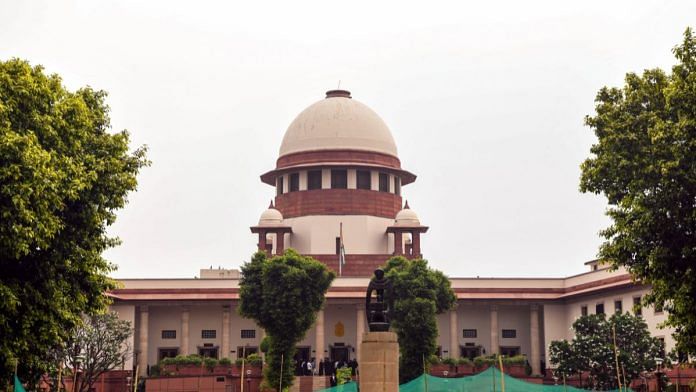New Delhi: The Supreme Court on Friday allowed the scientific survey of Varanasi’s Gyanvapi Mosque, ordering the Archaeological Survey of India (ASI) to conclude the entire process with “non-invasive methodology”.
“We reiterate the direction of the (Allahabad) HC that there shall be no excavation,” the top court said Friday.
The top court noted the Allahabad High Court “was correct in introducing some specific directions to circumscribe the nature of the order passed by the district judge”, which ordered excavation if necessary during the survey.
“The ASI has also clarified that it is not carrying out any excavation or destruction,” said the bench of Chief Justice D.Y. Chandrachud, and Justices J.B. Pardiwala and Manoj Misra.
The top court was hearing a plea by the mosque administration, the Anjuman Intezemia Masjid Committee, challenging the Allahabad High Court’s decision Thursday to allow the survey that would ascertain if the mosque was built over a pre-existing temple.
The Allahabad High Court had said that the survey was “necessary in the interest of justice”, adding, “The Varanasi Court was justified in ordering an ASI survey of the premises.”
The mosque is adjacent to the Kashi Vishwanath Temple in Varanasi where Hindus have sought the right to worship, claiming it was built on a temple.
On 21 July, Varanasi District Judge A.K. Vishvesh directed the ASI to conduct a detailed scientific survey — including excavations, wherever necessary — in response to the Hindu petitioner’s claims. The demand for this survey was raised by four Hindu women on 16 May, 2023.
The mosque committee appealed against this order in the high court, arguing that the survey might damage the historic structure.
Initially, the Allahabad High Court bench of Chief Justice Pritinker Diwaker had expressed “strong doubts” about the ASI’s methodology, but was later convinced when their lawyers argued that the ground-penetrating radar (GPR) method would not damage the structure. The ASI also told the court that a team from IIT Kanpur would be called for a radar and GPR survey.
ASI officials began the scientific survey at 7 am on Friday. Representatives of the Hindu petitioners in the legal dispute were present inside the complex which saw watertight security arrangements. Members of the masjid committee boycotted the survey.
Five Hindu women were the original litigants in the case, who in August 2021, moved court seeking daily worship rights at the Maa Shringar Gauri Sthal within the contentious Kashi Vishwanath Temple-Gyanvapi Mosque complex.
A lower court then ordered a video survey of the complex which found a structure in the ablution pond or the “wazoo khana”. The Hindu side claimed it was a Shivling while the Muslim side said it was part of a fountain.
This area was subsequently sealed by the court — given the sensitivity of the matter — and will not be part of the ASI survey.



